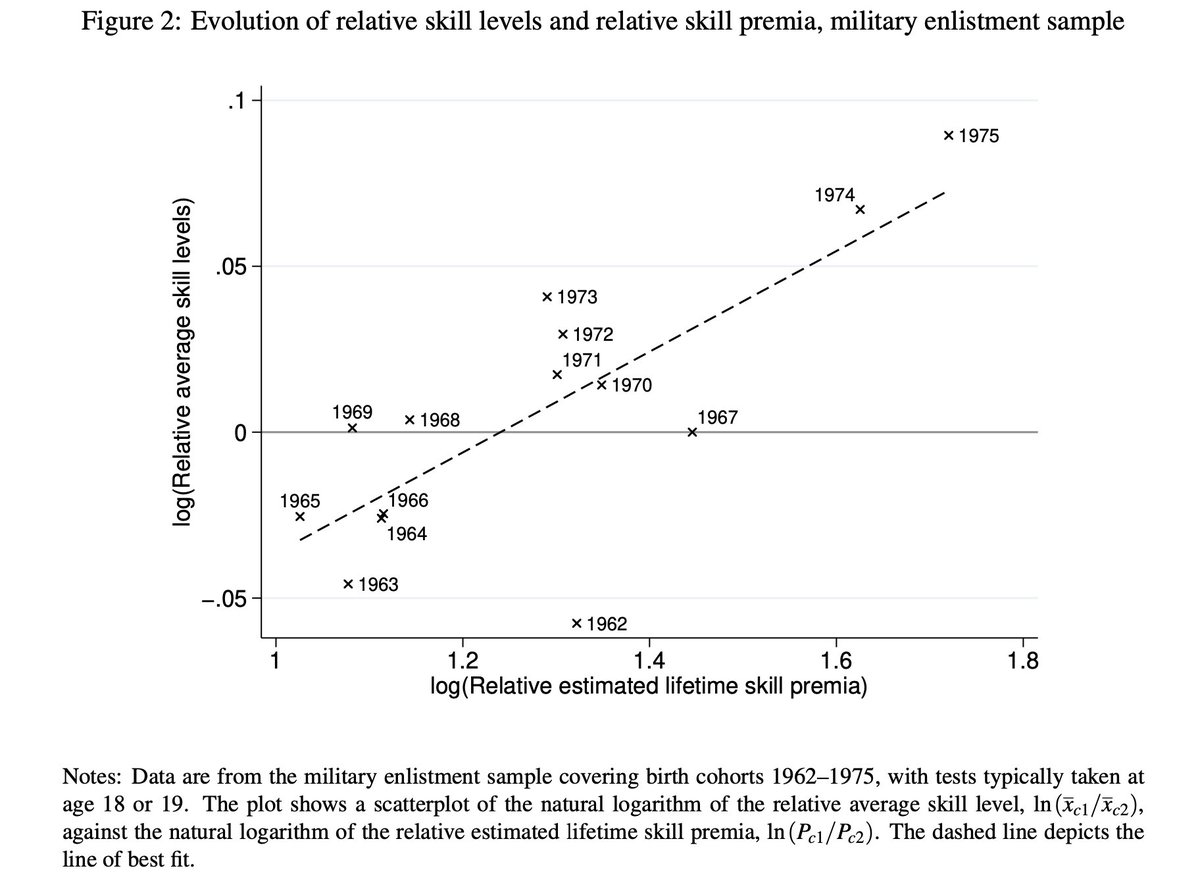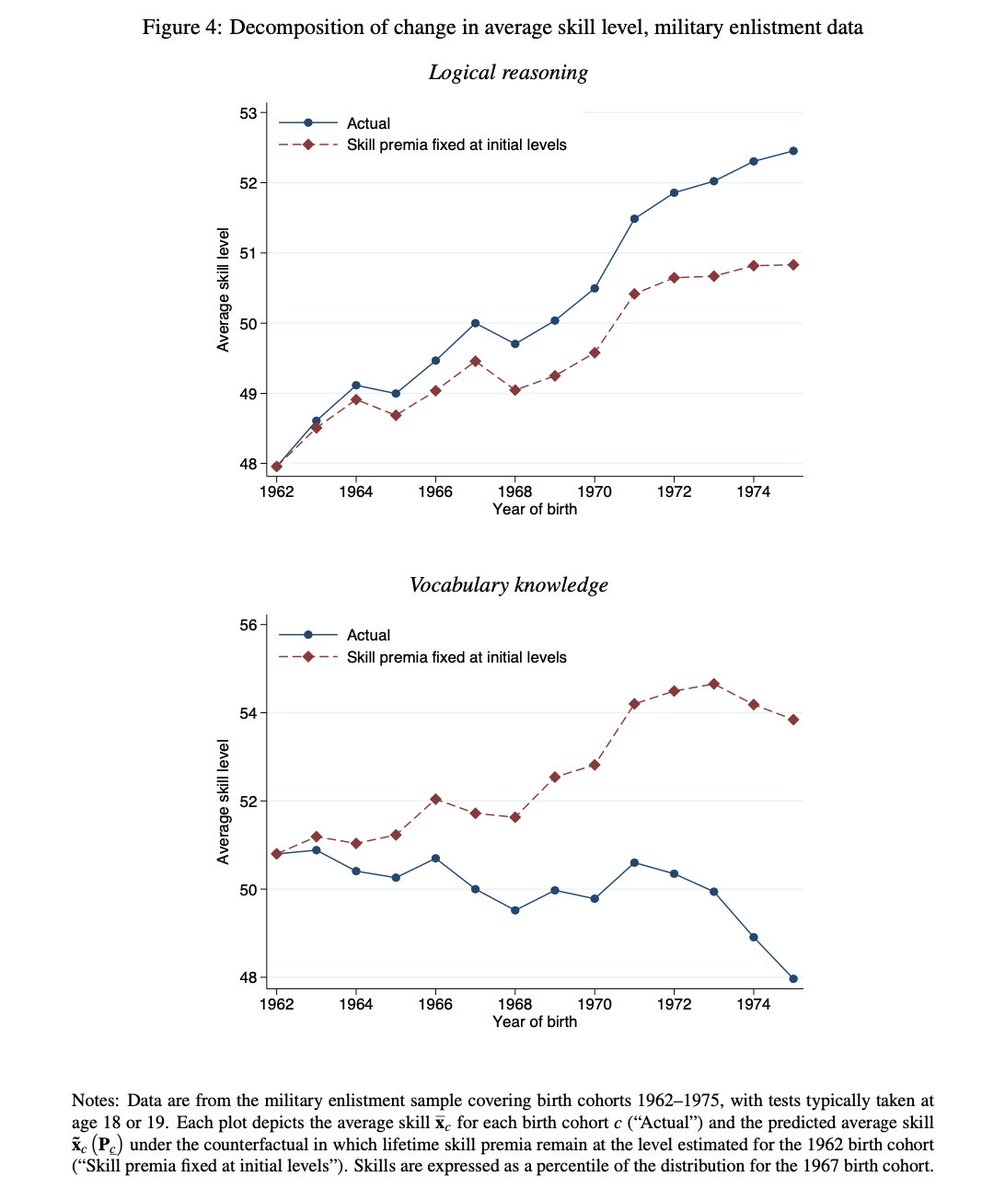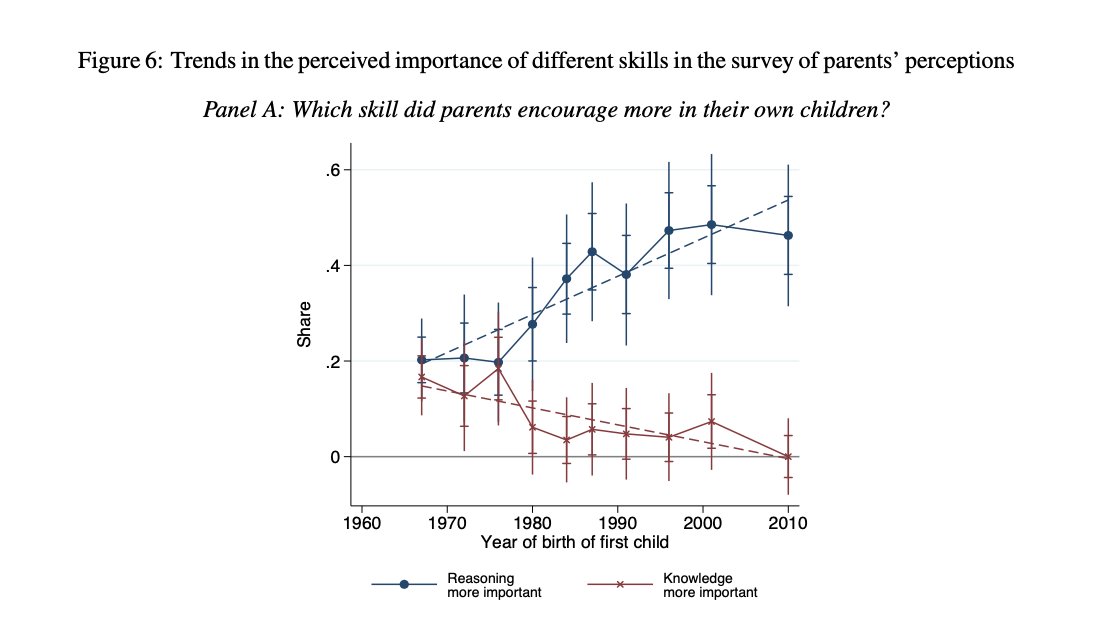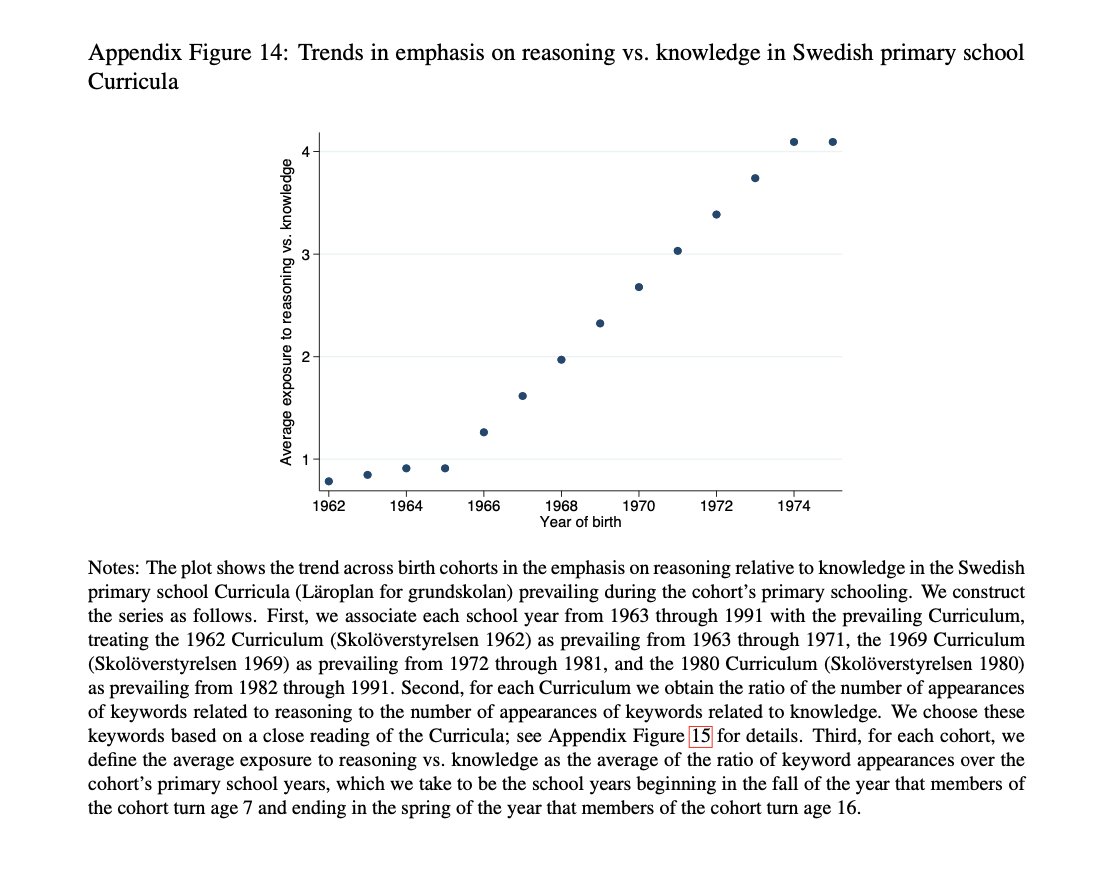
Can changing labor market returns help explain observed trends in cognitive skills in developed countries? Our new @nberpubs WP, with @santiagohermo @SeimSeim and Jesse Shapiro, argues they can.
#EconTwitter @SU_Economics @Brown_Economics
nber.org/papers/w29135
A short thread:
#EconTwitter @SU_Economics @Brown_Economics
nber.org/papers/w29135
A short thread:
An influential literature in cognitive science has documented substantial gains cognitive skills across birth cohorts in developed countries, known as the "Flynn effect". 1/10
These gains are especially pronounced for "fluid intelligence", a notion of general reasoning skills. In contrast, there are much more muted gains – or even declines – for "crystallized intelligence", typically measured using knowledge assessments such as vocabulary tests. 2/10
Explanations for the Flynn effect in cognitive science tend to focus on factors that affect the *supply* of skills, such as improvements in health and nutrition. However, it's possible that changing societal *demands* for different skills also affect the observed trends. 3/10
We combine Swedish administrative data on earnings with data on scores from tests of logical reasoning (fluid intelligence) and vocabulary knowledge (crystallized intelligence) taken at military enlistment. Our data cover the near-population of men born in 1962-1975. 4/10
We then develop an economic model where aggregate output depends on the aggregate skills of workers, and skills are determined by an exogenous endowment (e.g. health) and an investment decision made early in life (by parents, children, and schools). 5/10
The investment decision in our model is affected by the lifetime labor market returns to skills, which we estimate as NPVs of cohort-age-specific Mincerian returns. What turn out matter, in particular, are the *relative* lifetime returns to different skills. 6/10
We start by documenting the Flynn effect in our data (left fig, 1st row) and noting that returns to both logical reasoning and vocabulary knowledge skills have *fallen* over time (2nd row). Moreover, the *relative* return to vocabulary knowledge fell by 40 log points. 7/10 



How much of these trends in skills are driven by changing returns? Comparing actual changes to a counterfactual where returns stay fixed over time, we find that changing returns can explain ~1/3 of the increase in fluid int. and the entire decrease in crystallized int. 8/10 

Using an original survey of Swedish parents and an analysis of primary school curricula in Sweden, we argue that our findings are consistent with schools and parents putting increasing emphasis over time on children developing reasoning skills over factual knowledge. 9/10 



Finally, on a personal note: I'm very proud of this paper. To say I've learnt a lot while working on this project would be an understatement. It was especially nice to see @SeimSeim present the paper at @VATT_research where I was a summer intern before starting my PhD. :-) 10/10
@threadreaderapp unroll
• • •
Missing some Tweet in this thread? You can try to
force a refresh



